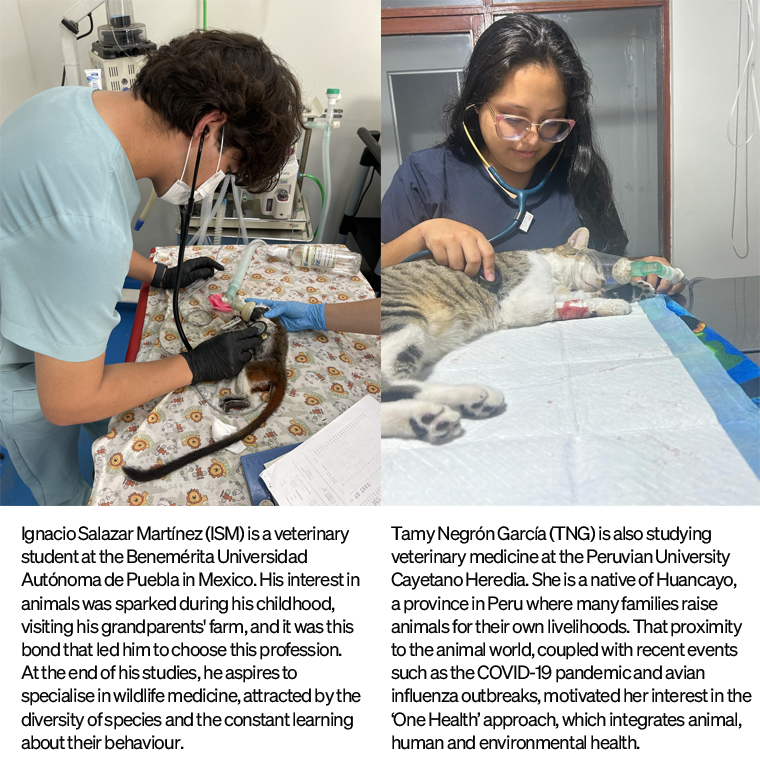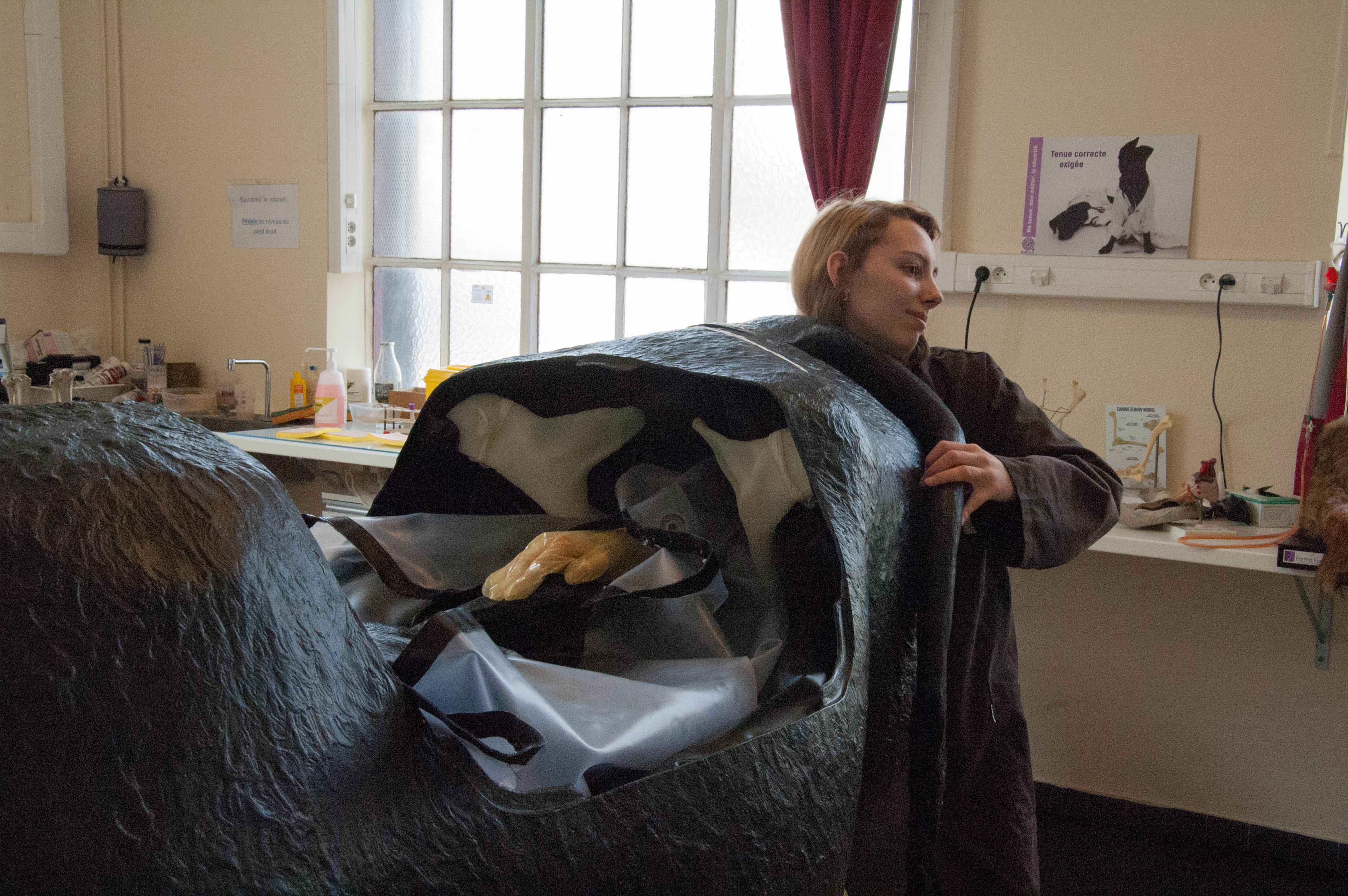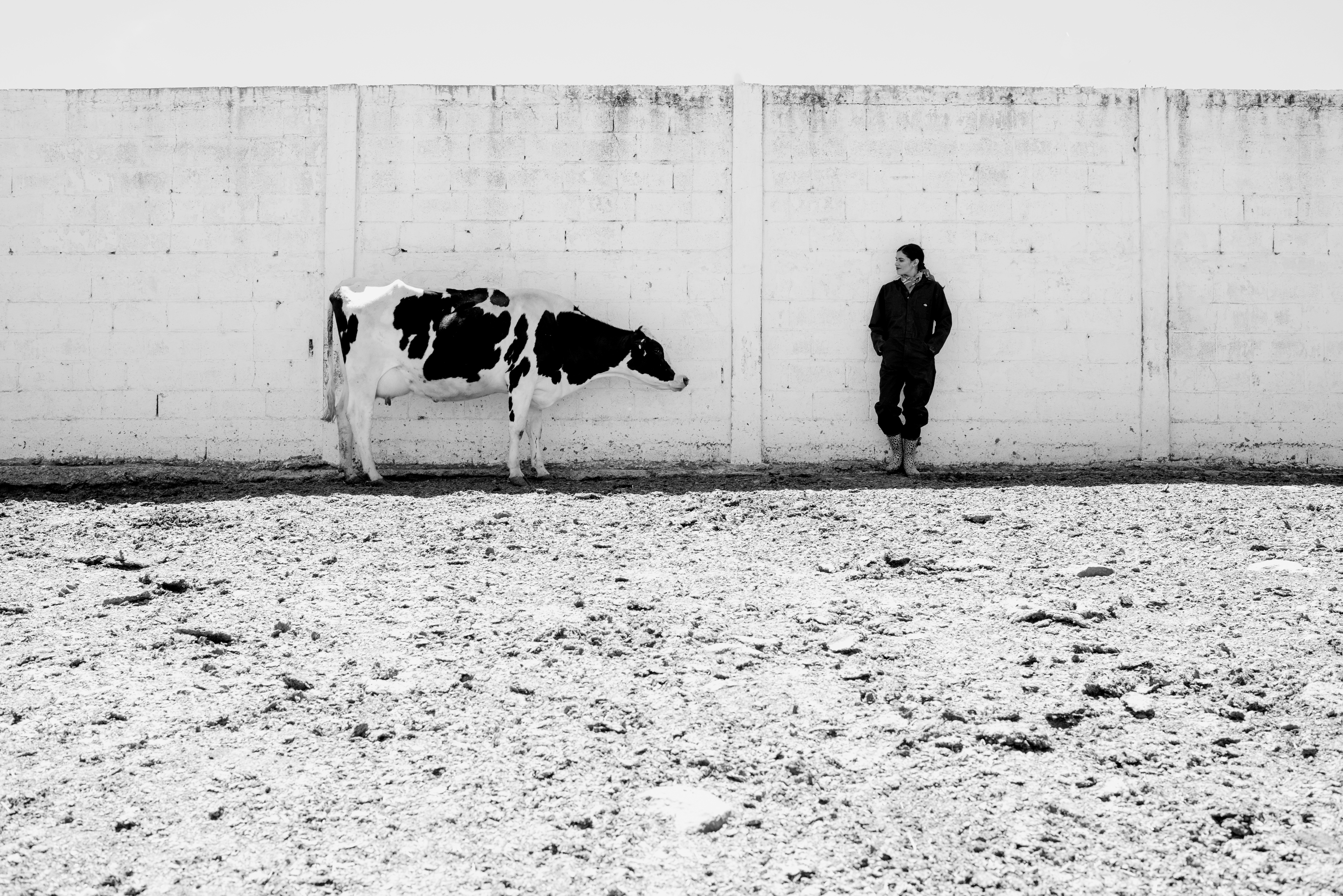In an increasingly interconnected world, animal health can no longer be thought of in isolation. The profession requires a holistic approach, capable of building bridges between animal, human and environmental health. In this interview, we talk to two veterinary students, members of the International Veterinary Students Association (IVSA), who are passionate about their vocation and committed to the health challenges of the region.
ISM: It means trusting and creating links with professionals from different areas. It is just that: working together, getting involved as much as possible with everyone, because in the end we share the same objective.
TNG: I think it is fundamental, because animal health involves multiple factors and requires the joint work of different professionals. Although we all receive a common training, each one specialises and contributes from a different perspective. On many occasions, one is not an expert in an area and needs the support of colleagues to find solutions.
IVSA is the world's largest veterinary student association. It is currently present in 85 countries, at more than 190 universities and represents over 25,000 members worldwide. ©WOAH/S.Hilka
ISM: In Mexico, the role of the veterinarian in the ‘One Health’ approach is still not fully recognised. Many people think that we only deal with dogs, cats or production animals, but our role goes far beyond that. For example, in the case of food of animal origin, there are veterinarians ensuring that health and welfare protocols are met. Our work is key to ensuring food safety.
TNG: I see it as important as that of human or environmental health professionals. In Peru there is also a deep-rooted idea that veterinarians only take care of companion animals, and we have the challenge of showing how essential our work is. I was very impressed to learn that veterinarians participated in the development of vaccines against COVID-19. If we learn to work together across disciplines, we can more effectively address shared health challenges.
As part of the cooperation agreement with IVSA, WOAH is working to increasingly involve young people in its activities. Their input provides the point of view of the next generation of animal health professionals. ©WOAH/N.Balderrama
ISM: In the area of animal production, the main challenge is the lack of support for small producers, both financial and educational. This limits the understanding of diseases and their consequences, and has a direct impact on everyone’s health.
TNG: I would summarise it as a major lack of knowledge, from producers and consumers, as well as from some professionals. For example, not everyone understands the importance of properly controlling zoonotic diseases or avoiding the indiscriminate use of antibiotics. During the avian influenza outbreak in Peru, many people stopped eating chicken out of fear, which negatively affected the entire production chain. This happens because of misinformation.
ISM: I am interested in zoological medicine, because many diseases that can affect humans have their origin in wildlife. I want to contribute by researching and developing strategies to care for and intervene in these ecosystems, understanding how to prevent the transmission of diseases from wild animals to humans.
TNG: I would like to work in the area of food safety and also in antimicrobial resistance, because these are fields where there is still a lack of information and awareness. Through research and constant updating, we will be able to move forward and detect which aspects need more attention.
ISM: That they choose with conviction, because it is a career that transforms you on a personal level. It is important that they understand the breadth of this profession, that they explore different areas before deciding, and that they don’t get the idea that veterinary medicine is only for small animals. There are so many possibilities.
TNG: I would tell them to explore all branches, because that will allow them to discover their true vocation. We are the future of the profession, and we need to keep an open mind to take advantage of every learning opportunity.
More information:



